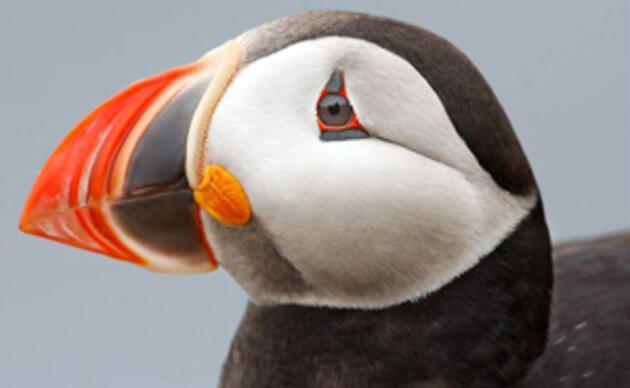Our 2019 Work: The Seabird Restoration Program in Action
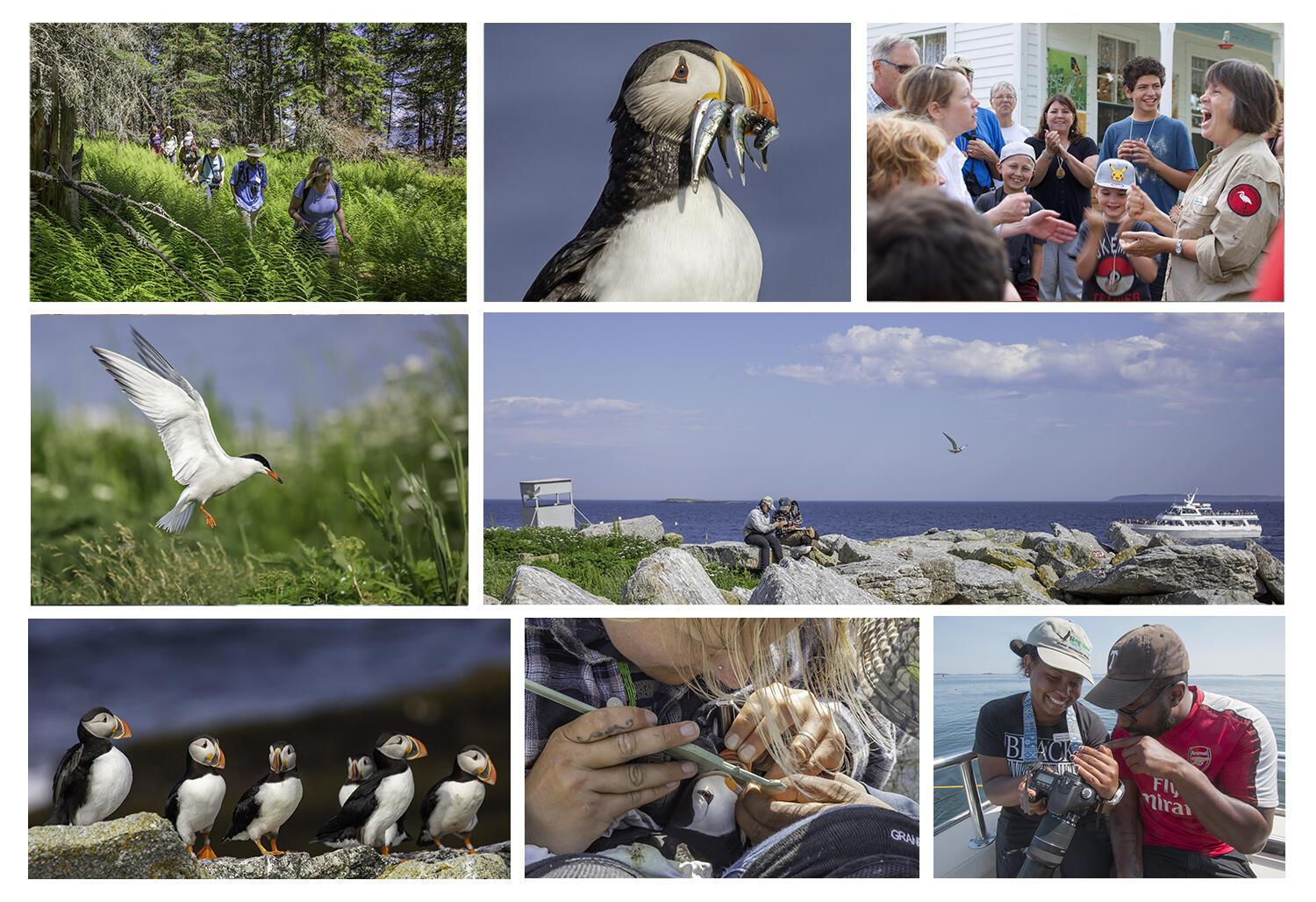
It was a year of transition with the retirement of our founder, Dr. Steve Kress, but the program continues to expand upon his legacy of seabird conservation. The many accomplishments and inspiring programming was made possible thanks to YOU. We thank each and every volunteer, seabird advocate, conservation partner, camper, bird cam fan and puffin lover. We look forward to continuing this exciting conservation journey with you in 2020.
In the meantime, let’s celebrate what we did together in 2019:
We launched the Seabird Institute to ensure our science counts.
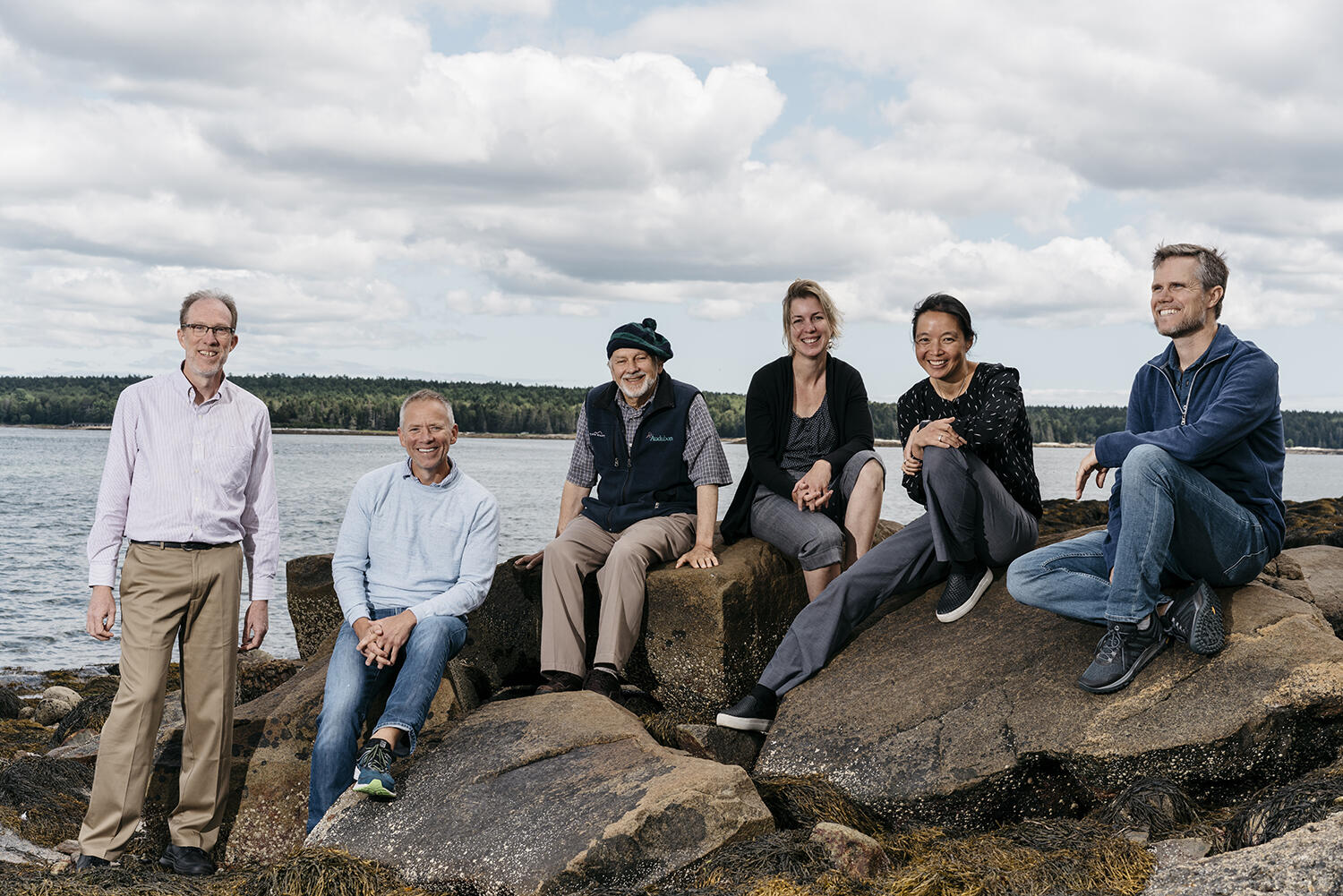
This summer saw the launch of a cross cutting vision for seabird conservation. With its hub in Bremen, Maine, the Seabird Institute will closely partner Audubon’s seabird science and policy experts to broaden the impact of our science to produce legislative and policy wins for seabirds and their marine environment. Thanks to a transformational gift, our 48 years of seabird conservation and research in Maine has become the foundation of Audubon’s marine conservation efforts across the organization. With this approach the Seabird Institute can continue to apply science to habitat restoration, identify marine protected areas, and advocate for healthy fisheries on which seabirds depend but with greater reach. Already we’ve had some exciting wins!
We voiced seabirds’ needs for critical policy wins.
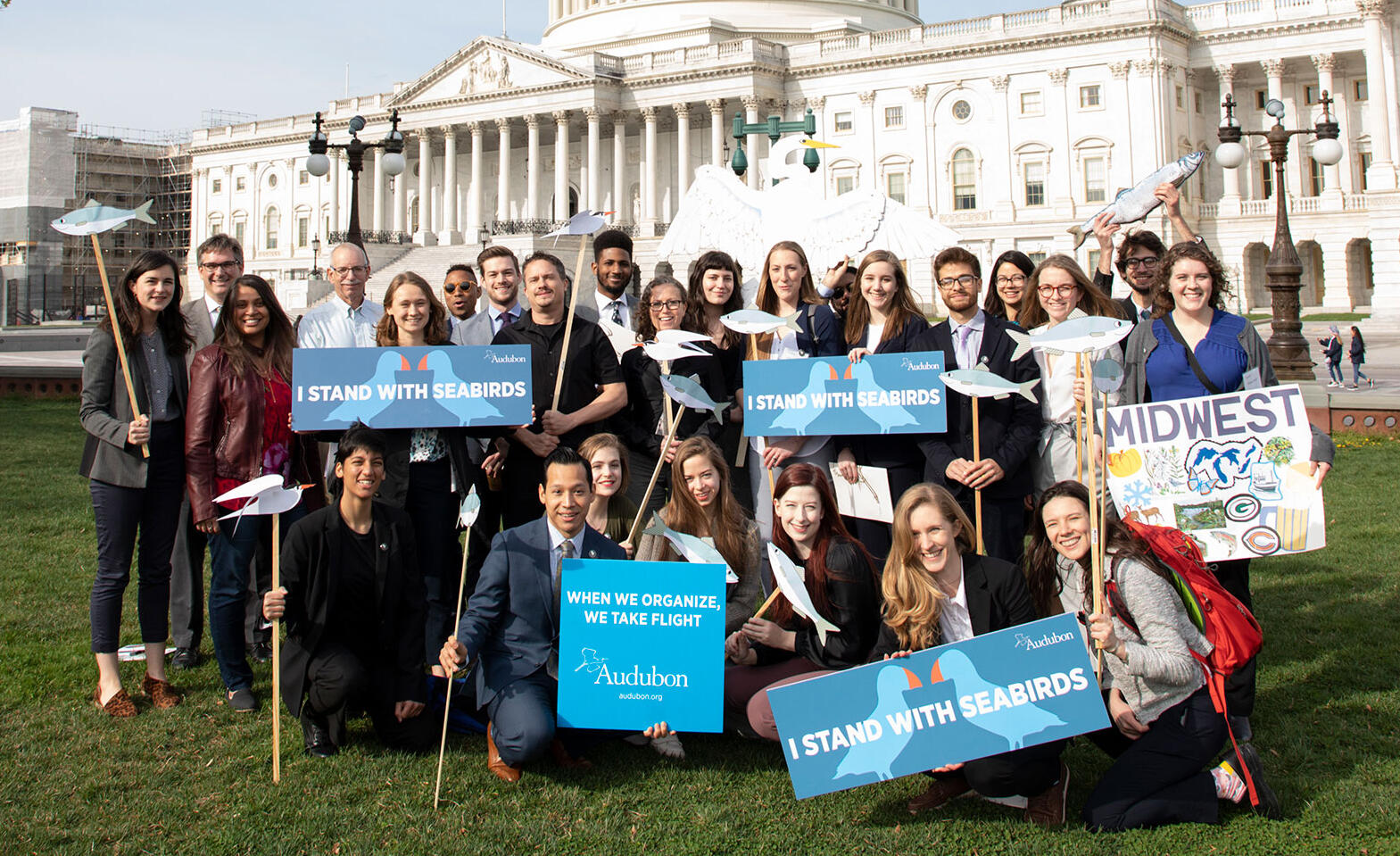
We worked across the Audubon network to advocate for solutions to the seabird and forage fish crisis. One example was a seabird advocacy “fly in” to Congress by members of the University of Wisconsin Green Bay Student Conservation Chapter. These and other efforts supported the proposed Forage Fish Conservation Act and defended the Magnuson-Stevens Fishery Conservation and Management Act. More locally in Maine, we advocated for final acceptance of improved Atlantic Herring management rules, including publishing an op-ed in the Portland Press Herald in November.
With our support, legislation to implement the international Agreement on the Conservation of Albatrosses and Petrels was introduced in the House (H.R. 1305) and momentum is building toward bipartisan introduction in the Senate. We also filed legal briefs in a court battle to help defend the Northeast Canyons and Seamounts National Marine Monument, an area our science has shown to be important for puffins during the winter. In July, we also welcomed the first visit to one of our Maine seabird islands by a member of Congress, Representative Chellie Pingree of Maine’s 1st District. During the visit we discussed the importance of forage fish for both puffins and fishing communities.
We inspired generations by sharing our seabird knowledge.
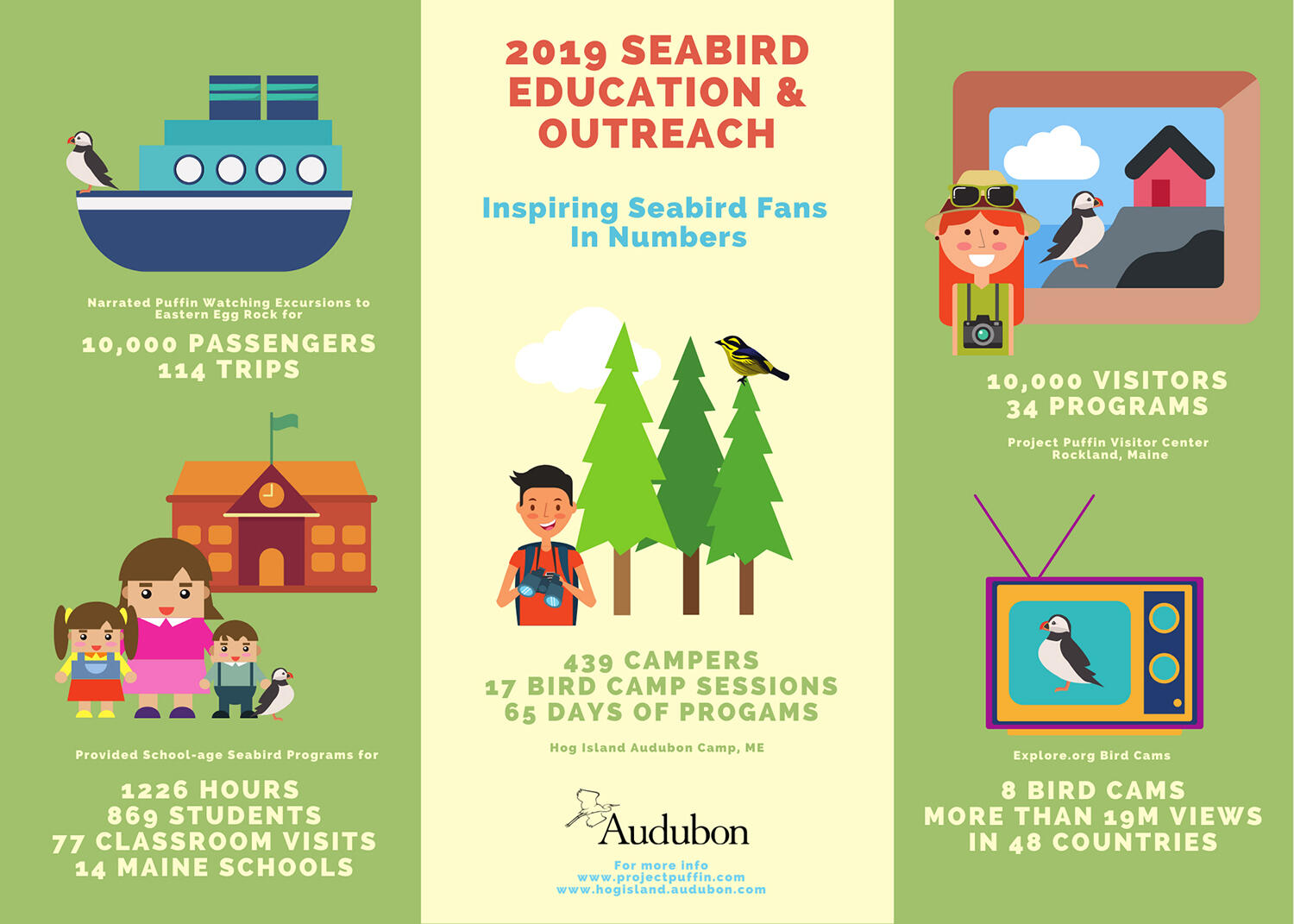
Part of what makes the program special is our ability to share our passionate knowledge of seabirds, and the Maine environment. This year, not only did we train researchers on seabird nesting islands, but we gave children, teens, educators, and the general public an opportunity discover the world of seabirds and how to become good stewards of their marine habitats.
Be sure to join us for some of our exciting programming next year! To learn more visit: projectpuffin.org or hogIsland.audubon.org
We listened to what seabirds are telling us.
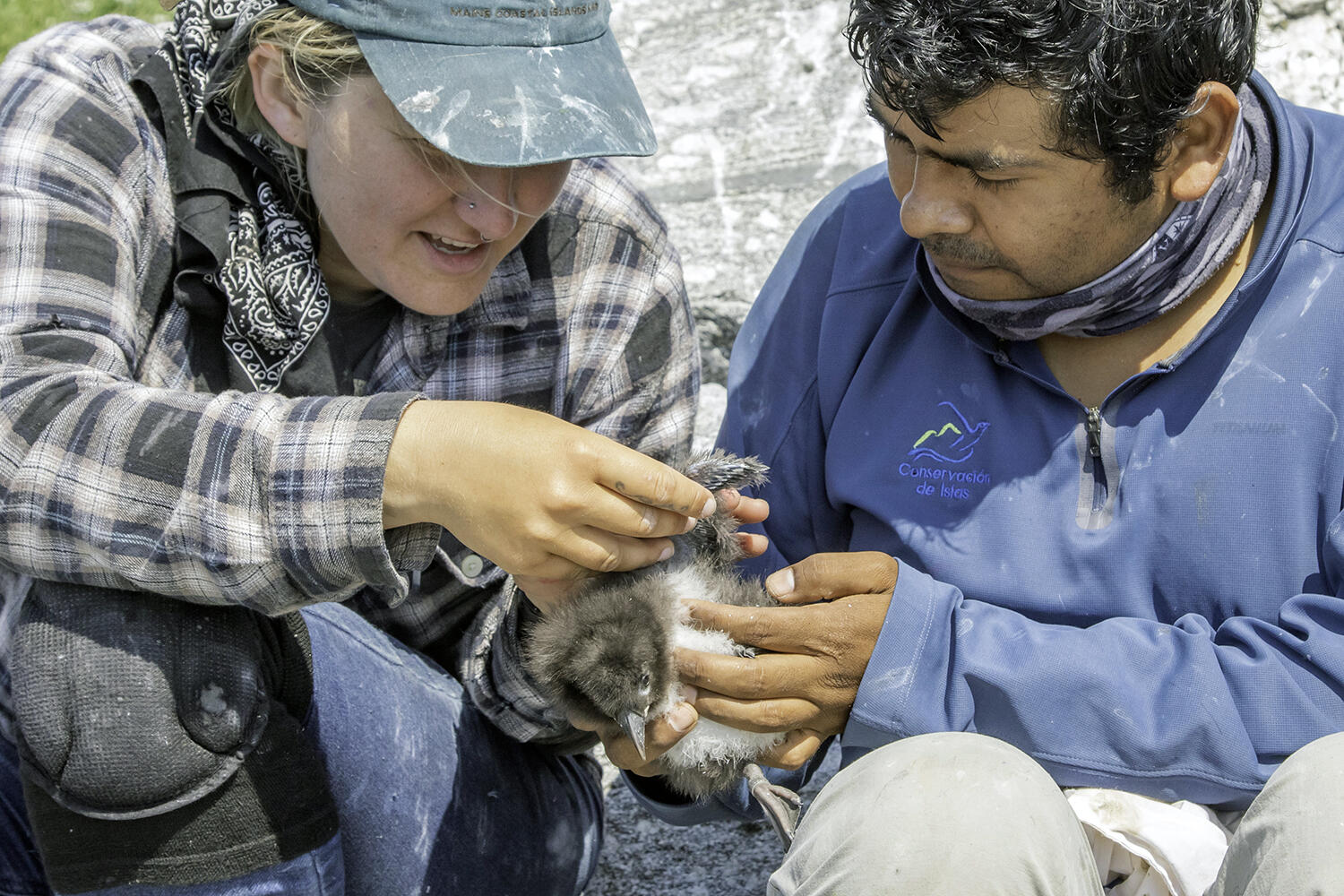
New research efforts on the islands focused on tracking our seabirds to learn where they go to find food for their chicks. We learned that puffins sometimes travel over 30 km (19 miles) from the colony! We also began harnessing the power of poop (!) by using DNA found in fecal samples to identify the fish species both adult and chicks are eating.
We continued to harness our long term datasets for deeper understanding of seabird-forage fish relationships. Colleagues with NOAA Fisheries included our seabird data in their annual Gulf of Maine State of the Ecosystem report for fisheries managers. Our latest peer-reviewed publication, in the September issue of Marine Ecology Progress Series, focused on the shifting diets of puffins and razorbills and how that has impacted their breeding success.
We restored and safeguarded seabird habitat.
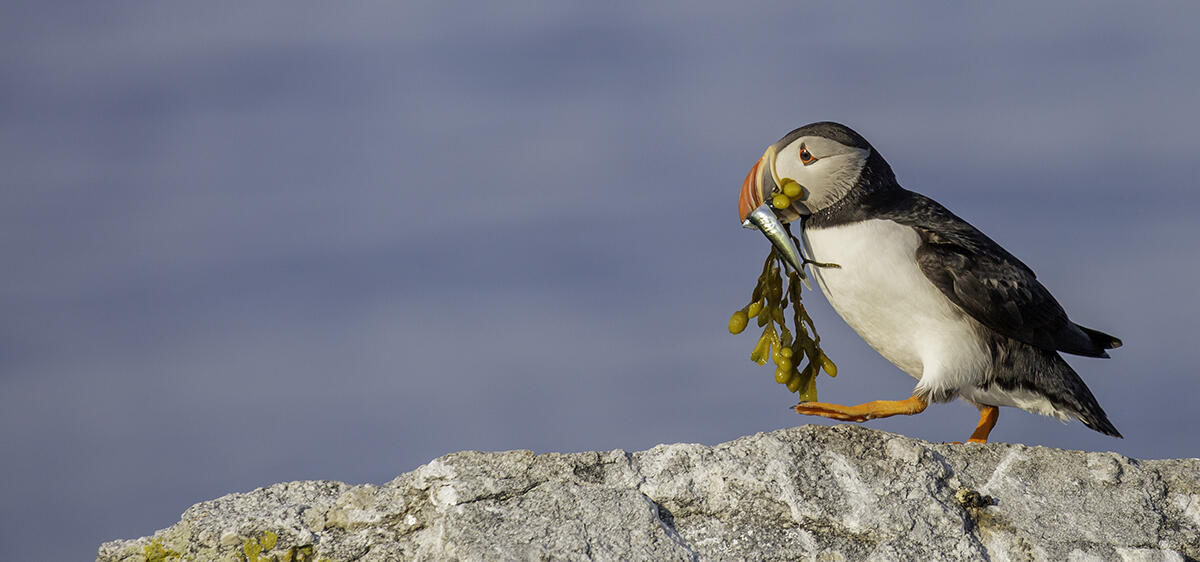
Our ongoing stewardship efforts were rewarded with record numbers of Common Terns across our 7 islands, up 14% over 2018, and a new high count of 188 puffins on Eastern Egg Rock. Gulf of Maine temperatures were moderate and forage fish relatively abundant this year, resulting in healthy and abundant chicks. With support from a NOAA grant, we also removed nearly 5 tons of marine debris from seabird nesting islands. Beyond the Maine coastline, our conservation decoy team produced nearly 400 decoys to support projects in Alaska, Puerto Rico, Bermuda, Nova Scotia, California, Hawaii and Chile.
Thank you for your help in making this all happen!
Learn about birds and take action
Adopt-A-Puffin
Adopt now and receive a Certificate of Adoption, along with a biography of "your" puffin!
Visitor Center
The Project Puffin Visitor Center (PPVC) is located at 311 Main Street in downtown Rockland, Maine. The center opened its doors officially on July 1, 2006.


